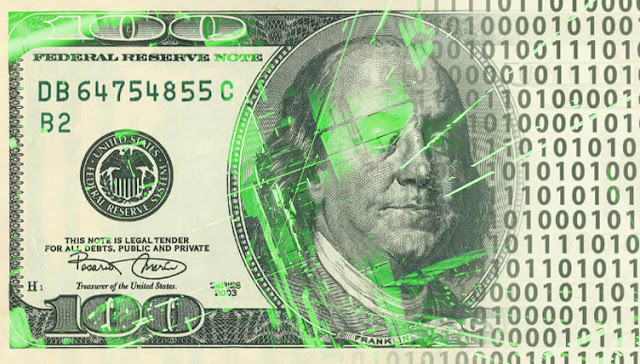Rising CONFLICT Over the 'Digital Dollar', As Some States BAN IT Before It Even Exists...
The battle for the future of money is heating up in the United States, with some states proposing to ban the "digital dollar" before it even exists, while others quietly pass laws to make it a reality. It's a conflict that has raised concerns about privacy, surveillance, and control.
Florida Governor Ron DeSantis is leading the charge against the digital dollar, announcing a proposed bill to ban it in his state. According to a statement from the governor's office, the legislation is intended to "protect Floridians from the Biden administration's use of financial sector weapons through a central bank digital currency (CBDC)."
DeSantis's bill seeks to prohibit the use of the digital dollar or CBDC as money in Florida and to create "protections" against digital currencies issued by central banks belonging to nations sanctioned by the United States. He hopes that other states will follow suit and establish similar prohibitions to "fight this concept throughout the country."
In the view of the Republican governor, a digital currency "has to do with surveillance and control" of citizens, and it "will stifle innovation." adding that "Florida will not side with the economic central planners. "We will not adopt policies that threaten economic freedom and personal security."
Senator Ted Cruz of Texas is also pushing for a ban on the digital dollar, citing concerns about privacy implications. He argues that a digital dollar "could be used as a financial surveillance tool by the federal government."
As Other States Quietly Take Steps to Move the Digital Dollar Forward...
President Biden issued an executive order last year that instructs several government offices to research creating a central bank digital currency, since then things have appeared to be moving forward with no official updates from the federal government.
The silence seems to be deliberate when it comes to the most recent steps targeting the Uniform Commercial Code (UCC), which are laws that every state has, and every state controls.
Intended to make sure states can easily conduct business with each other, the digital dollar may be the first time there's been major disagreements between some states and could result in the 'Uniform' codes ending up far from uniform nation-wide.
Just this week South Dakota Governor Kristi Noem vetoed House Bill 1193 which would have opened the doors for the digital dollar in her state by amending their UCC to allow for fully electronic payments backed only by electronic records "this is extremely troubling. If Congress were to someday create an official electronic currency that is programmable, it would pose significant threats to Americans’ liberty and privacy rights. Why, then, would so many lawmakers want to make it easier for such a currency to be used in their states?"
Both republicans and democrats have made more public statements implying they are against the digital dollar, yet both parties have been found slipping the verbiage needed to make it happen into bills in their states, now there are similar bills headed to vote soon in 20 more states including in Arkansas, Montana, New Hampshire, North Dakota, Tennessee, Texas, and California.
One Major Roadblock Could Still Stop the Digital Dollar from Happening...
Not because they share any of the same concerns citizens have voiced - but nonetheless, they hate the idea and they may have enough power over politicians to get their way - the banks.
Banks see the Digital Dollar as a way for the government to become their biggest competitor. Imagine - your job pays you in digital dollars, they're stored in an app on your phone, and virtually every place you would spend money accepts it, what do you need a bank for?
While banks would still have a role when it comes to investing, lending, and securing larger business and personal accounts, the average person could go months, or even years without needing to interact with a bank, and have no need for a personal account.
A battle with significant consequences...
Both for the future of our economy and the role of the government in our financial lives. Will we become a cashless society dominated by a digital dollar, or will we maintain the status quo?
Until recently, this all felt like something so far in the future it was hard to really concern yourself with - but as we begin seeing real laws designed to move plans for the digital dollar forward proposed in multiple states, the potential implications are beginning to feel very real.
-----------
Author: Ross Davis
Silicon Valley Newsroom
GCP | Breaking Crypto News


